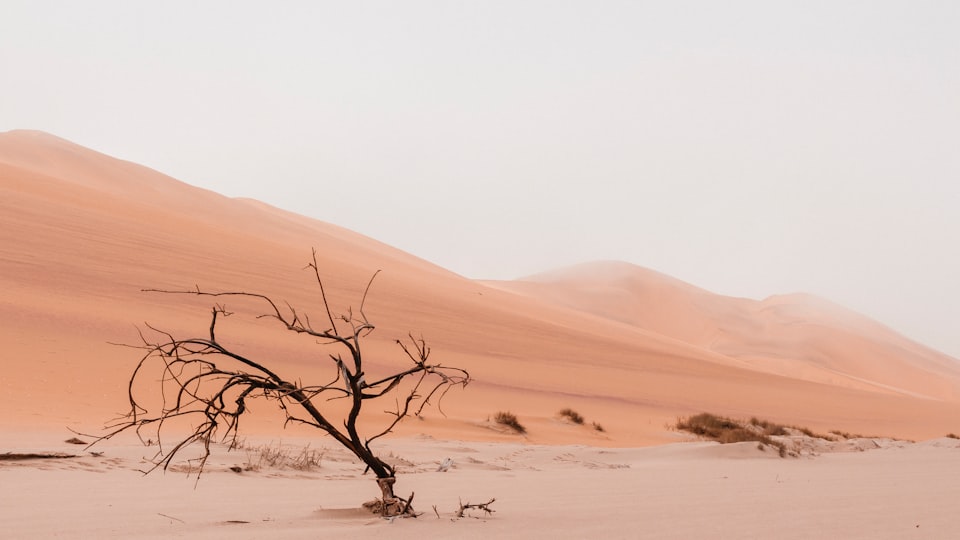desert spaces

desert: noun
1: arid land with usually sparse vegetation — especially: such land having a very warm climate and receiving less than 25 centimeters (10 inches) of sporadic rainfall annually
2: an area of water apparently devoid of life
3: a desolate or forbidding area — lost in a desert of doubt
There are dry places in the world. They're defined by their lack of water–by their lack of regular rainfall. They're not normally fun places to stay. They're apparently devoid of life, desolate, and forbidding. We call them "deserts."
Most people attempt to avoid the desert at all costs. When they can't be avoided, we take every necessary precaution: extra water, extra food, extra clothing–maybe even some shelter.
It's interesting to note that most of the universe is, in fact, a desert. The temperature of outer space varies more widely than on our planet, but it's still devoid of life, desolate, and forbidding. Anything that could be called rain in outer space or on other planets would probably cause instant death.
But there's one small exception to this rule: Earth. In our view, a life-sustaining environment is the default, but that's not true. Earth is exceptional. It's the one place where life is abundant, people are everywhere, and things are subdued to a point where our own minds and bodies are our greatest dangers.
But we still have deserts. We still have places that require us to admit that the world is bigger than we are. They remind us that we are not little gods capable of creating luxurious palaces to fight off the elements in every climate; because in the desert, there is no climate. There are no elements. Once all the distractions are gone, the only thing to fight off in the desert is death itself.
Illogically, many of the spiritual greats found themselves drawn to the desert, of whom Jesus wasn't even the first. But why the desert? Stop and think about it for a little while. I know most of my readers actually live in the desert.
Here's what I think:
In both real, physical deserts and perceived, emotional or spiritual deserts, we can't mask our real physical, real emotional, and real spiritual needs with the decadent excesses of easy living. Deserts remind us that we're reliant on continued providence for everything that keeps us alive and healthy.
But why is that a good thing? Why should it be desirable for us to be constantly faced with the reality of our childish dependence and feeble mortality? I think it has to do with our innate human desire for truth. We don't want to be deceived. We want to see the world as it is.
Particularly in our culture, we're offered a story that differs from the truth. "For three low payments of $19.99, you can have ..."
"... happiness."
"... peace."
"... an easy life."
But when we recognize that these are all lies and decadent social constructs, it starts to wear on you. On our idyllic planet, specially designed to keep us alive (or perhaps we specially designed to live on this planet, or both), there are very few spaces where we can see reality for what it is. Deserts are windows into life without abundance, life without society, and life where we have to admit our habitual reliance on these things.
